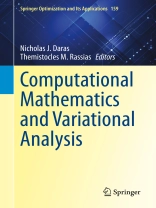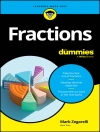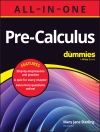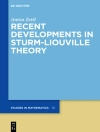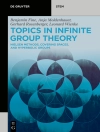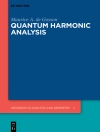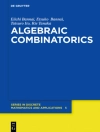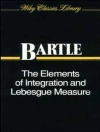This volume presents a broad discussion of computational methods and theories on various classical and modern research problems from pure and applied mathematics. Readers conducting research in mathematics, engineering, physics, and economics will benefit from the diversity of topics covered. Contributions from an international community treat the following subjects: calculus of variations, optimization theory, operations research, game theory, differential equations, functional analysis, operator theory, approximation theory, numerical analysis, asymptotic analysis, and engineering.
Specific topics include algorithms for difference of monotone operators, variational inequalities in semi-inner product spaces, function variation principles and normed minimizers, equilibria of parametrized N-player nonlinear games, multi-symplectic numerical schemes for differential equations, time-delay multi-agent systems, computational methods in non-linear design of experiments, unsupervisedstochastic learning, asymptotic statistical results, global-local transformation, scattering relations of elastic waves, generalized Ostrowski and trapezoid type rules, numerical approximation, Szász Durrmeyer operators and approximation, integral inequalities, behaviour of the solutions of functional equations, functional inequalities in complex Banach spaces, functional contractions in metric spaces.
Inhaltsverzeichnis
On some piecewise linear classifiers based on non-smooth optimization (A.M. BAGIROV).- Local-optimal solutions and their applications (H.D. CHIANG).- Cyber security investments with nonlinear budget constraints (P. DANIELE).- Systemic theory and deterministic prediction (N.J. DARAS).- Poincaré type inequalities for Green’s operator on harmonic forms (S. DING).- Inequalities for relative operator entropy (S. DRAGOMIR).- Complementarity and variational inequalities with applications in electronics (D.GOELEVEN).- Strong and weak convexity of closed sets in a Hilbert space (V.V. GONCHAROV).- Counterfactual reasoning with Bayesian networks as a healthcare governance tool to enhance defence medical services (E. KYRIMI, S. MOSSADEGH, N. TAI and W. MARSH).- An optimization methodology for operational environmental forecasting systems (G. KOUMPAROULIS and G. GALANIS).- When Data reveals ransomware activity (J.L. LANET).- On non-smooth multiobjective optimality conditions (M.M. MAKELA).- Small array systems with massive performance capabilities: Beamforming, localization and tracking (A. MANIKAS and V. SRIDHAR).- Bottom-up hierarchical ramp secret sharing scheme (G. MELETIOU, S.A.N. ALEXANDROPOULOS, D. S. TRIANTAFYLLOU and M.N. VRAHATIS).- Separation of finitely many convex sets (D. PALLASCHKE).- Optimization Theory (P. PARDALOS).- Blind transfer of personal data insuring privacy (R. ROLLAND and A. BONNECAZE).- Optimization problems with hidden nonconvex structures (A.S. STREKALOVSKY).- On the congruence subgroups of braid groups (C.STYLIANAKIS).- Military info-support operations in modern conflicts: evolution of MISO’s methodology during the modern conflicts in XXI century (T. SCZUREK and M. GORNIKIEWICZ).- Safety and Security for the system-of-systems in the military from a cyber-physical perspective in the new era of Internet-of-Things (W.R. TSAGALIDIS).- Formal modeling and verification of an autonomous swarm of UAVs for monitoring applications (A. TSOURDOS and V. LAPPAS).- Metrical Pareto efficiency and monotonicity (M. TURINICI).
Über den Autor
Nicholas J. Daras is the Dean and professor of mathematics at the Hellenic Military Academy. He has authored over 70 articles including 18 books and has edited 7 books. Professor Daras has received a “best paper in mathematics Award” by the Academy of Athens. Daras is also the supervisor of several doctoral, masters, and diploma theses.
Themistocles M. Rassias is professor of mathematics at the National Technical University of Athens. His research interests include nonlinear analysis, global analysis, approximation theory, functional analysis, functional equations, inequalities and their applications. Professor Rassias received his Ph D in mathematics from the University of California, Berkeley in 1976; his thesis advisor was Stephen Smale and his academic advisor was Shiing-Shen Chern. In addition to his extensive list of journal publications, Professor Rassias has published as author or volume editor several books published with Springer. Th. M. Rassias hasreceived several awards and is an active editorial board member of an array of journals in mathematical analysis and optimization. His publications have received a large number of citations, with h-index 46.
